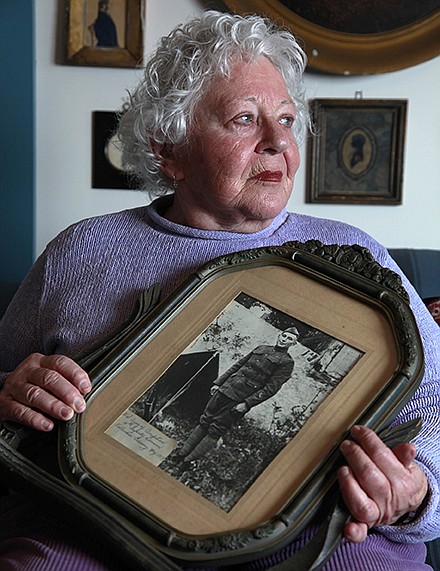ST. LOUIS (AP) - Nearly a century after Sgt. William Shemin pulled wounded comrades to safety on a World War I battlefield, his heroism has finally earned him the nation's highest service medal.
The White House announced Thursday President Barack Obama will award the Medal of Honor to two World War I soldiers - Shemin and Army Pvt. Henry Johnson. Shemin died in 1973, so his daughter, Elsie Shemin-Roth, in her mid-80s and from suburban St. Louis, will accept the medal in a ceremony at the White House on June 2.
Shemin-Roth did not respond to calls seeking comment Thursday. She said in an earlier interview that she worked for years to gather documents in support of her bid for the medal for her father, an honor she felt was previously denied because he was Jewish.
"Discrimination should never play a role when our country pays tribute to extraordinary acts of courage and selfless sacrifice," Sen. Claire McCaskill of Missouri said. "I couldn't be prouder that we were able to correct these past injustices, and that William Shemin and other Jewish heroes will get the recognition they deserve, and the national gratitude they earned."
Shemin was 19 in August 1918. His battalion was fighting in France. Americans were scattered over the battlefield.
"With the most utter disregard for his own safety, (Shemin) sprang from his position in his platoon trench, dashed out across the open in full sight of the Germans, who opened and maintained a furious burst of machine gun and rifle fire," according to one of Shemin's superiors, Capt. Rupert Purdon, who later wrote in support of a Medal of Honor.
The young sergeant took shrapnel while leading the platoon out of harm's way for the next three days. A German bullet pierced his helmet and lodged behind his left ear, landing Shemin in the hospital for three months and leaving him partly deaf. Shrapnel wounds eventually left him barely able to walk.
He was awarded the Distinguished Service Cross, the nation's second-highest military honor, but there was never an explanation of why he was denied the Medal of Honor. Shemin, who was from New York state, later earned a degree from Syracuse and started a greenhouse and nursery business in the Bronx.
In the early 2000s, Shemin-Roth learned of a law that reviewed cases of Jews who may have been denied medals they earned in World War II. She also learned there was no similar mechanism for World War I veterans, and set about to change that, prompting passage of a measure allowing review of records of Jewish World War I veterans who may have been discriminated against.
Johnson, of New York City, was part of an all-black National Guard unit ordered into battle. On May 15, 1918, Johnson and a fellow soldier were attacked by at least 12 German soldiers, according to the White House. Despite serious wounds, the two men fought back until the Germans retreated, while Johnson kept his badly wounded colleague from becoming a prisoner of war.

